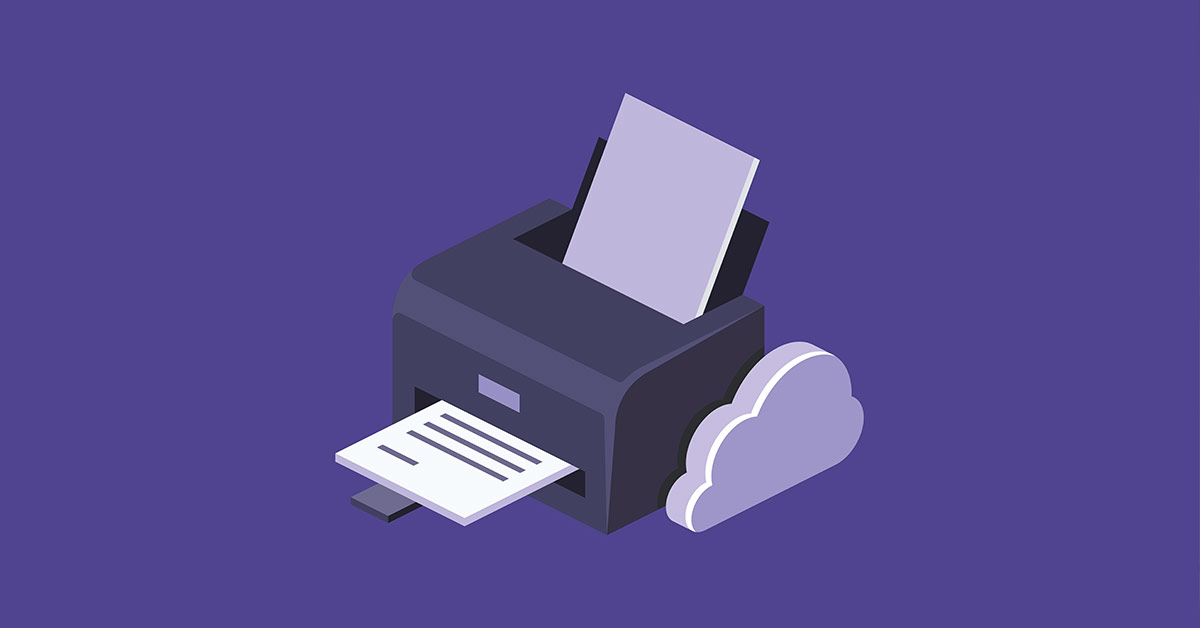Hybrid working is here to stay, and technology adoption is accelerating across industries. It might surprise you that fax is one of the technologies that will influence the future of work in a number of them. Find out why in this article from Scott Wilson, Director of Customer Experience at eFax.
We are entering a new phase in the evolution of work. It started with a sudden shift to homeworking; now it’s becoming increasingly likely that many businesses will embrace a hybrid set up. This will mix on and offsite work with the aim of fusing the best of both models.
It’s a step into the unknown for everyone involved. From global technology leaders like Google and Salesforce, to multinational banks such as HSBC, organisations are tackling the challenge of moving to a completely new model in their own ways.

The Challenges of Hybrid Working
That said, there are a number of common issues that all will need to overcome. A shift to hybrid working has implications for corporate security, company culture, and the type of technology businesses currently have access to.
One area that needs to be addressed in particular is the issue of sharing and storing vital business documentation. New data from eFax suggests this has become a concern for UK companies, with more than three quarters (76%) of UK IT directors saying that increased workforce access to documents and paperwork during the lockdown period has created an additional security risk.
It’s therefore perhaps unsurprising that only 28% are completely confident in how vital business documents and paperwork will be securely shared and stored in a move to hybrid working.
That’s in marked contrast to counterparts in France and Germany, where nearly half (49%) of French and 44% of German respondents were confident in the security of sharing and storing vital documents.
Improving How documentation is Shared & Stored
To address this, it’s worth first considering how businesses are sharing and storing documentation. While the likes of email and file sharing systems have long been subsumed into working culture, many organisations still rely on faxing. This is particularly true for businesses in healthcare, real estate, financial services and many other highly regulated sectors, where data protection and privacy regulations have increased the need for documents containing personally identifiable information to be securely handled.
But where does fax sit within a digital, flexible and hybrid model of working? Say faxing to most people and they will think of an underused machine in the middle of the office, occasionally whirring and emitting a dial tone, before spitting out reams of paper that someone may eventually collect. That hardware may be some form of multi-function printer, or it could be a standalone device. But either case, it will rely on an on-premise fax server. In other words, it’s legacy technology unfit for the digital era.
It’s an outdated, insecure and expensive set-up, and the UK IT decision-makers who responded to our survey agree. When asked what their top challenges are when using on-premise fax servers, the majority (66%) say they are outdated legacy technology (e.g. with limited functionality). Nearly half (49%) say they are insecure, followed by 43% saying they are expensive, (to install, run, maintain and upgrade). In addition, a significant proportion (31%) felt they were unfit for the resilient and regulatory demands of today.
No wonder then that, as organisations make the shift to hybrid working, a clear majority (89%) of respondents expect their employer to move away relying on fax technology. Ultimately, a new hybrid workforce needs to be able to send and sign vital documents and paperwork securely, regardless of when or where they are working.
Scraping Fax Servers for a Secure, Flexible and Adaptable Fax Replacement
This is all very well, but if businesses are going to scrap fax servers, they need to make sure the alternative is fit for purpose – secure, flexible and easily integrated into current operating processes and workflows.
It needs to be secure because a hybrid model is by its very nature digital, and that means an increased risk of cyber-attacks. The solution needs to be fully encrypted and able to withstand a variety of threats, including those targeting the return to work and the ongoing confusion of the pandemic crisis.
It needs to be flexible because employees are going to be much more location fluid. They need to be able to share documentation wherever they are, and not wait until they are in the office to fax something.
Finally, it needs to adapt and integrate into workflows. This is often overlooked in the implementation of technology – traditional fax is itself notoriously bad for productivity, forcing employees to use a separate machine to send and receive documentation. Any replacement needs to fit seamlessly with the hundred and one other things workers need to accomplish, and not sit outside of their usual applications, services and processes.
One option that covers all three areas is digital cloud faxing. It might be referred to as internet faxing, cloud faxing, faxing by email, or digital fax solutions, but ultimately it all means the same thing – faxing for the digital era.
Whereas legacy fax server technology is not fit for purpose, a drain on resources and a weak link in corporate cyber security, digital cloud fax is none of those things.
It allows the entire fax process to be handled digitally via the web, using a company’s email application, workflow solution, mobile application or secure web-portal. Employees can send and receive faxes, meeting regulatory requirements, with the same device they use for email.
Digitising Vital Communications
Despite the assumption that fax is a relic, it remains a vital part of the communications infrastructure for many organisations needing to quickly exchange and retrieve documents and authorisation. However, for fax to be a critical part of a hybrid workforce, companies need to scrap on-premise fax servers, and move to digital cloud fax. Businesses need communications that support, not hinder, new ways of working. The solution they choose must provide the flexibility, adaptability and security required to successfully implement hybrid working.
ABOUT OUR GUEST WRITER
Scott Wilson
Director of Customer Experience, eFax
Scott Wilson is Director of Customer Experience at eFax, where he is responsible for over £25 million fax related revenue. Prior to joining eFax, Wilson held a number of roles in Sales Operations at various organisations including Bord Gais Energy, Dell, Perlico (Vodafone) and IBM in a technology career spanning more than 20 years.







